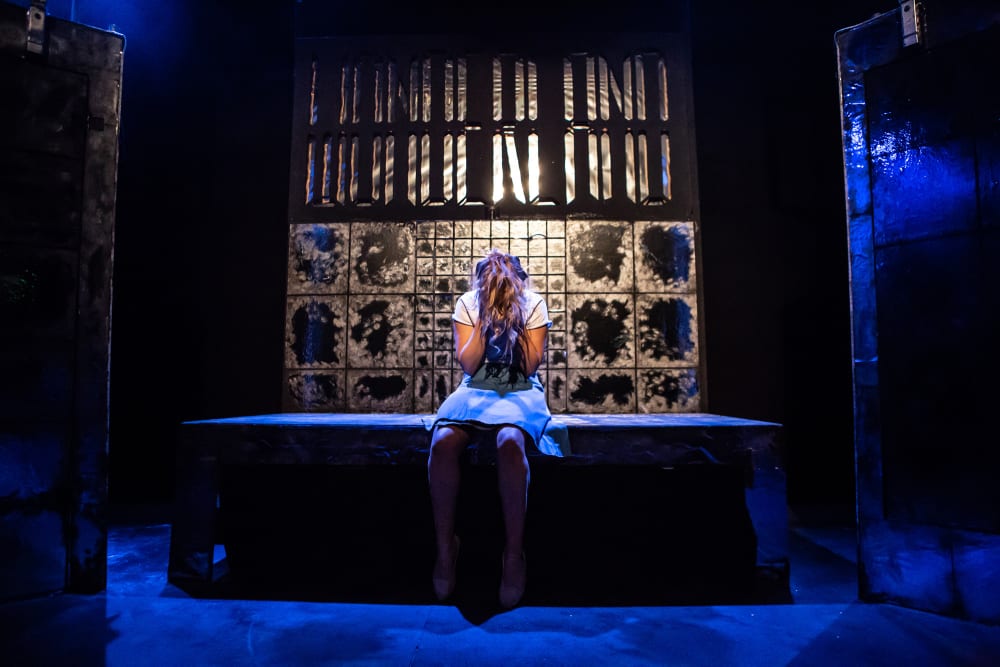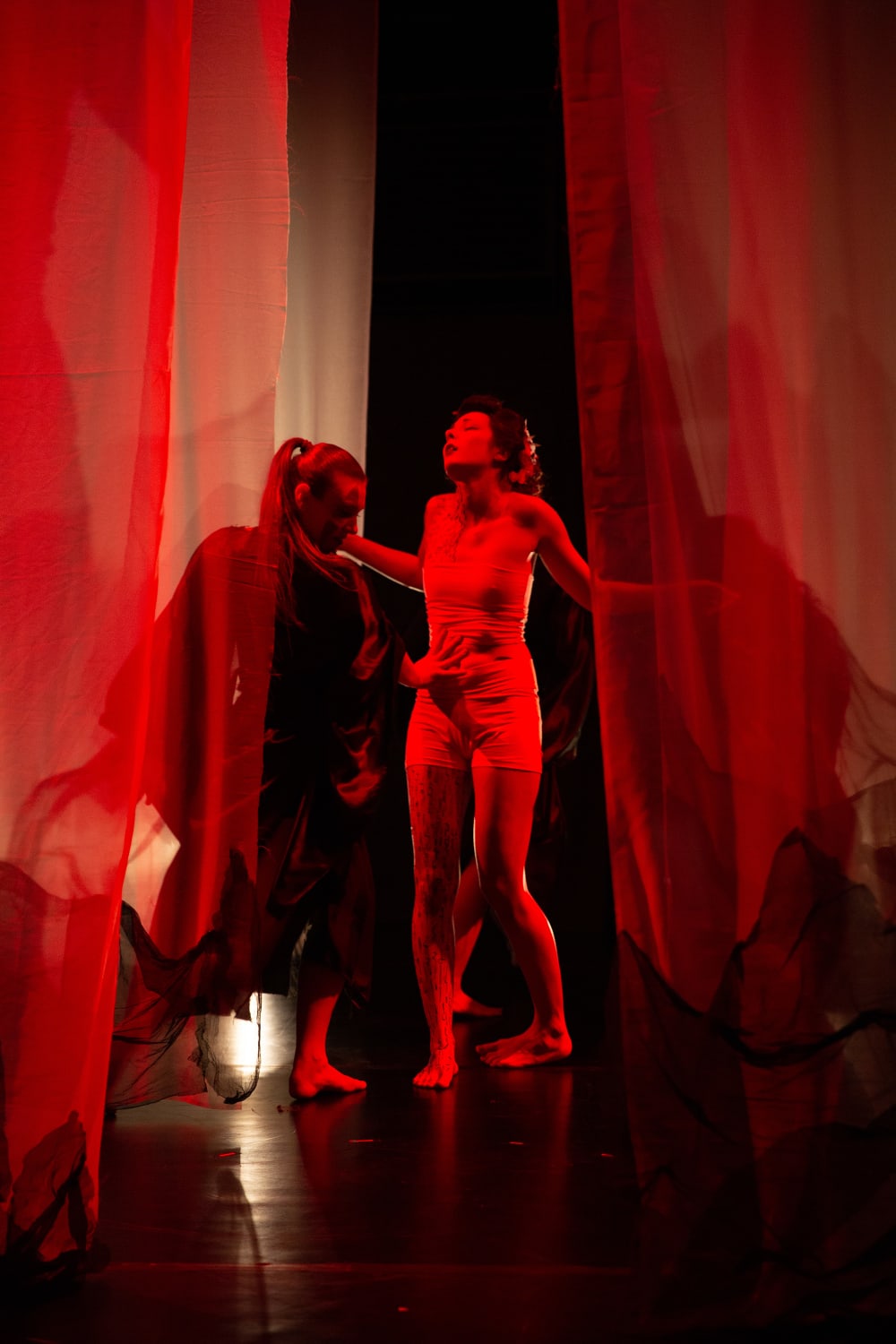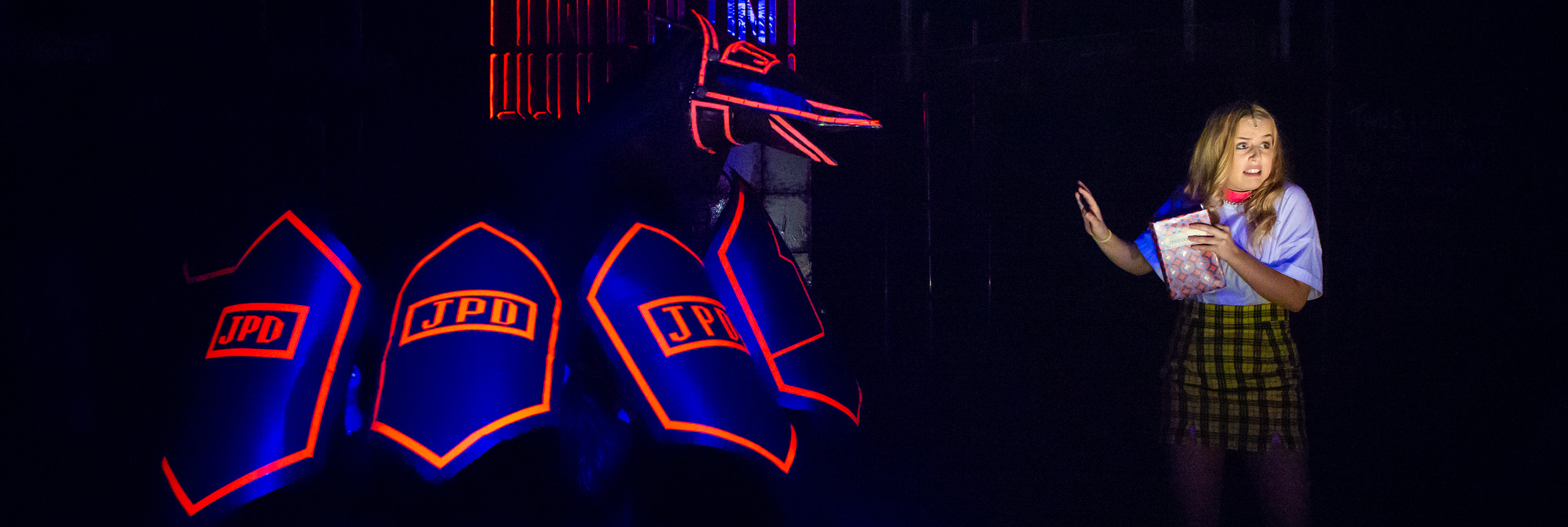Technicians at Wimbledon are a key part of our teaching and learning staff. They work both in studios and workshops to support students to undertake independent practice.
We spoke to Nigel Little, a lighting and sound technician here at Wimbledon College of Arts, to find out more about his role and what students will be taught on the BA Creative Technical Theatre course.
How did you get into theatre production?
I studied a theatre electrician's qualification in college which was my first real introduction to the technical side of theatre production.
From there I did some work with a company called The Spot Company doing tours for The Prodigy. After that cast finished, I gained work experience at Jackson’s Lanes Theatre in Highbury and Islington before taking a full-time production job at a production company.

, Wimbledon College of Arts, UAL | Photograph: Wimbledon College of Arts
How do you support students on the course?
I tend to work with students on a 1-to-1 basis, understanding what they want to achieve with their projects and helping to bring their ideas to life. I will often start with an induction where I teach students how to run the desk, rig the shows and pre-visualise the shows to save time in programming.
We often work with visual design software like Capture, teaching students how to map out their work on screen before it reaches the stage, whether it be with lighting, video, laser or moving scenery.
What can students expect to learn?
Students on the course can expect to learn key techniques and professional working practices that are currently used within the industry. From lighting and design, visualisation capture and colour theory to sound sculpture classes, animation, editing software and much more.
I teach the core fundamentals of live production from a technical standpoint, so students have a solid foundation from the rig and fit up right up to the actual programming of a show.
What advice would you give to students to ensure they get the best support from a technician?
Use us as much as you can! All the technicians here have a valuable wealth of knowledge, skills and expertise that you might not be able to access as easily on the outside world – so don’t take it for granted, we are here for you at end of the day.

, Wimbledon College of Arts, UAL | Photograph: Wimbledon College of Arts
Which project has been a highlight for you this year?
My biggest highlight this year would be seeing second year BA Theatre Design students produce their own Shakespeare show. The fact that they went from knowing nothing about programming a show, to then running the sound, video and lighting cues all by themselves was great to watch. It gives me real satisfaction to see students able to work confidently and independently to bring their creative ideas to life.
What advice would you give students applying for the course?
Try and get a rough idea of what you’re interested in. Spend some time doing research on the industry, think about what practitioners you admire and why. Look at career pathways and start mapping out what it is you need to gain from the course to get a step closer to your career. A little organisation can go a long way and helps to give you a focus and sense of direction – which can be a huge advantage.
Find out more about BA Creative Technical Theatre

